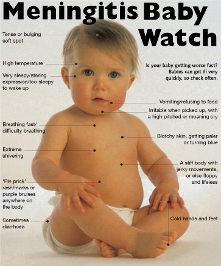|
|
|
MENU
About Us: | The A Team | | Babies Class | | 18 Months Class | | 2- 3 Year Class | | 3 - 4 Year Class | | 4 - 5 Year Class | | Grade R |
|
|
|
ENQUIRIES
|
|||||
|
EVENTS
|
|||||
|
|||||
Healthy Nutrition and Exercise for Children
‘As a mother and as a professional I see children being pushed very strongly by over-enthusiastic parents to get into teams and to achieve what they are quite possibly not capable of,’ says Kim Grossett, SANEP Panel Member and Director of Run / Walk for Life. ‘The result is a lack of motivation – children not wanting to exercise because they can’t achieve unrealistic goals.’ ‘Parents should not be putting this much pressure on children,’ Sharwood adds. ‘The emphasis should be on socialising, healthy activity and enjoyment, preferably with the family unit, not just in the environment of the school. If children are only getting recognition when they are achieving, it defeats the purpose of trying to make exercise fun.’ The SANEP study also highlights the need for a new approach to physical activity and nutrition education. While parents and children demonstrated a solid understanding of the benefits of healthy eating and exercise, they also showed a lack of ability in translating that understanding into action. “This seems to be a function of too much discretionary choice being given to kids,” comments Liz Kullmann, dietitian and SANEP member. As one of the group respondents highlighted “Each year the kids are getting fatter – they come to school armed with healthy tuck and money – and they often choose to ignore the tuck and buy “junk” from the tuck-shop. They skip breakfast and then don’t have the energy to concentrate in class. Then lunch of pizzas, pies, fizzy drinks and chips is often all they have to sustain them in their afternoon activities. Mums come to pick them up regularly armed with fast foods. Added to this, kids can now choose if they want to participate in sports – and many of them choose not to.” ‘In future we should be looking at providing schools with material aimed at guiding parents and children alike on how to approach activity rather than sport alone, how to make activity fun and on giving parents menus which are both healthy and convenient and obviate the need to buy too much fatty, low nutrient foods’ says Kullmann. Regardless of affluence, South African families are mostly working households where parents are often removed from their children for long periods of time, and where children receive a great deal of personal responsibility for nutrition and exercise habits. The SANEP study makes it abundantly clear that South African families are in something of a crisis when it comes to food and exercise, and it is perhaps here, in the heart of the home, that South Africa needs to place its most urgent attention. ‘We are all born to run, jump and climb trees. However, parents are conditioning their children to be inactive by saying ‘Go sit quietly and read’, or ‘Go and play TV / computer games’, or stop running around like a child and grow up’, says Cari Corbet-Owen, Clinical Psychologist specialising in body image / childhood obesity issues, SANEP member and author of Mind over Fatter. ‘So, while parents are negatively conditioning their children by scolding when they are too active, they are also positively reinforcing inactivity amongst their children, who are praised for playing quietly, and being a ‘good’ girl or boy,’ Corbet Owen continues. ‘All children start off loving activity and then gradually this is conditioned out of them by well-meaning (but exhausted!) parents who are often only repeating the messages they received as children.’ Lastly, the SANEP study highlighted the emotional struggle working South African parents are going through. Whether as a result of an over-scheduled elite life, or for the masses without access to amenities, coaches or opportunity, South African children are suffering similar consequences of modern urban existence. A significant percentage of children are eating more energy-dense and nutrient-light food, exercising less and have less contact with parents than in the past. And there is no doubt that parents feel guilty about these issues. This guilt, in combination with strategic nagging and general parental exhaustion, leads to the soothing of emotions with frequent treats, and ordering take away foods over the weekends for convenience…. and so the negative pattern of inadequate nutritional habits and a lack of exercise is reinforced. |
|||||||||||||||||||||
|
|||||||||||||||||||||
|
|||||||||||||||||||||
















